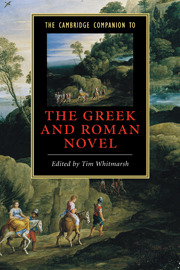2 - Literary milieux
from Part I - Contexts
Published online by Cambridge University Press: 28 June 2008
Summary
'Am I always to be a listener? Am I never to get my own back?' With these words the Latin poet Juvenal in the early second century CE opened the first of his Satires, purporting to give his readers a reason for his taking up writing. He goes on to give 'reasons' for his choice of satire. These can be only some of the factors we might want to see as contributing to an explanation for his writing what he did, but his opening offers us a good way into the issues relevant to why, in the literary world of the high Roman empire, somebody might choose to write poetry or prose at all, and into the factors that might have influenced a would-be writer either to choose an unusual genre or even to develop one that could be seen as in all or many respects new. Some of these factors are different in the Greek and the Latin worlds, and the greater part of the following exploration of the place of novels in the literature of the Roman empire will focus on the setting of the Greek novels within Greek literary production and consumption. My discussion of the Greek novels will attempt to set each of four surviving 'ideal' novels in the context of the Greek literature that had recently been written. For each period I shall ask what sort of literature was already prevalent when a choice to write a novel was made; what features in that literature might have encouraged or contributed to the novelist's project; and in assessing the subsequent period will ask whether there are any traces of the novel impinging on literature in other genres.
- Type
- Chapter
- Information
- The Cambridge Companion to the Greek and Roman Novel , pp. 17 - 38Publisher: Cambridge University PressPrint publication year: 2008
- 23
- Cited by

